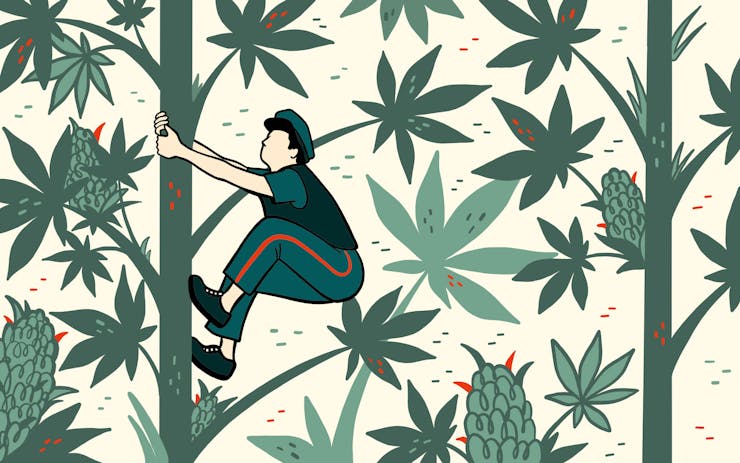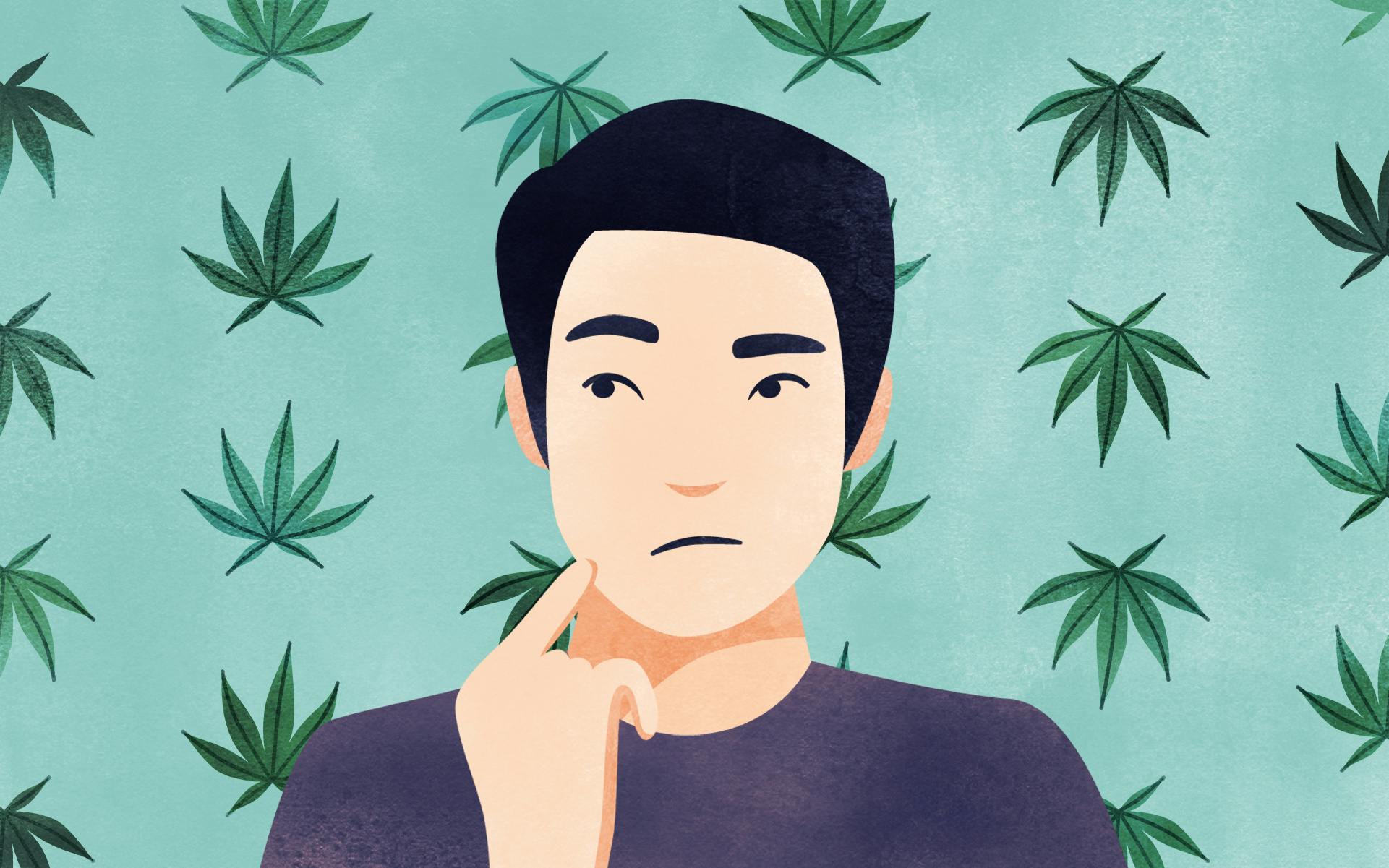It was the cannabis-cop story heard around the world. In January 2018, two Toronto officers allegedly stole a cannabis edible after raiding an illegal cannabis dispensary in Canada’s largest city.
The Crown alleges that officers Vittorio Dominelli and Jamie Young took part in diverting chocolate edibles that they later consumed, leading to panicked emergency calls to their fellow officers over concerns the edibles were laced with dangerous drugs.
Dominelli has pleaded guilty to obstructing justice by destroying or converting evidence to his own use. Young is reportedly claiming innocence and may go to trial.
The story made headlines, not because the officers took the edibles but because early reports alleged that one of the panicked officers climbed a tree.Too High? Try Some CBDAn agreed statement of facts before the courts between Dominelli and the Crown states that Dominelli and his partner were asked to oversee evidence collected from a raid of an illegal dispensary.
Dominelli believed it would be a mellow high, but he started sweating profusely, panicked, thought he was going to die, and radioed fellow officers indicating that there was an emergency.
The night of the raid, Dominelli ate one of the seized edibles after he and his partner discussed the impending legalization of recreational cannabis and the fact that he had never consumed it.
Dominelli believed it would be a mellow high, but he started sweating profusely, panicked, thought he was going to die, and radioed fellow officers indicating that there was an emergency.
A fellow officer fell while attempting to rescue the officer, which resulted in lasting injuries.
Why did this happen? How could an edible cause such a series of unfortunate events?
It may have been because Dominelli had never consumed cannabis before.
But shouldn’t we be looking into the edible regardless? Are we certain nothing in the edible caused Dominelli to panic besides THC? The only way we would know is if we tried the edible ourselves.
So I did.
It took just minutes to find an online sale for the same illicit “Family Brothers Confectionery” brand chocolate hazelnut bar pictured in police photo handouts that were published by the Toronto Star in December.
I’ll admit, I was pretty scared to be ordering and consuming potentially laced cannabis.
But nothing can get in the way of Pulitzer Prize-winning journalism. (Ok, maybe that goal is a stretch.)
The treat arrived a few days later from a Saskatchewan-based illicit mail order marijuana website. Just like Dominelli’s bar, the label said it contained 200mg of winterized BHO. At this point, I knew there was no turning back.
First, I thought, let’s be real: The likelihood of me ending up in a tree after eating the edible was pretty slim. Especially because I’m a regular cannabis user with a level of tolerance above new users.
But I wanted to find out. I immediately thought of pot comedian Doug Benson’s 2006 documentary Super High Me. Benson went 30 days with consuming cannabis and 30 days without consuming it. In addition to a battery of health tests conducted by a doctor as well as a test of his “ESP” skills, Benson took the SAT twice.
Benson scored better on the SAT stoned, but I didn’t have time for that.
Instead, I turned to an app-based tool called DRUID, invented a few years ago by University of Massachusetts Boston psychology professor Michael Milburn. He claims that the app can help detect cannabis impairment through a series of tests on a smartphone that, amongst other things, evaluate a person’s hand-eye coordination.
And here’s the thing: On a baseline test before consuming the edible, the series of tests on the mobile app determined that I scored 84.5 points and declared me “Extremely Impaired.” Excuse me, DRUID? I swear I was not impaired, but thank you for reminding me that I had smoked a joint earlier in the day.
When it was time to consume the edible, I chose a snowed-in Saturday night and prepared myself with some personal rescue remedies just in case: packets of chamomile tea and a handful of peppercorn, which Leafly has reported as a way to quell cannabis-induced anxiety when put under the nose.
Just like Dominelli and his partner, I ate an entire chocolate bar. And waited. And waited. But in my case, nothing happened.
So I took the DRUID test. It determined that I was still extremely impaired but less than I had been before. My score was a slightly lower 82.
It appears that the very edible that impaired an officer and made him fear for his life actually gave me a score that was lower than the one I had received before consuming the edible.
And for the rest of the night, I didn’t feel a thing. How about that?
Now, short of testing the bar Dominelli ate for contaminants, we won’t know if something malicious found its way into the specific bar he took, and we’ll likely never know.
But the experience serves to underscore what both users and regulators must take into account as the country is set to legalize the commercial sale of edibles in October 2019: Cannabis can affect people in vastly different ways.
It will take more than pamphlets of information. After all, Dominelli disregarded warnings on the packaging to “begin by using a small portion and wait 40 minutes.”
And regulators have pledged caution, perhaps based on the experiences of new consumers like Dominelli. Draft regulations would cap the amount of THC in an edible at 10 milligrams.
That may be a good thing, considering some edible products can make a grown, 36-year old police constable question their very existence.







